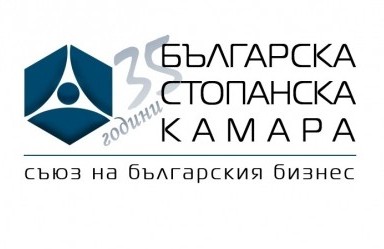Host: The European Commission (EC) might launch an infringement procedure against Bulgaria over the introduction of minimum fees of veterinary medicine services. BIA sent such a warning addressed to the PM. Mr Danev, let us first explain what stands behind those minimum fees. Who introduced the fees?
Bozhidar Danev: They were introduced by the professional organisation of vets. [The minimum fees] represent a severe violation of EU legislation and this is far from the first such occasion. Many other professional organisations in Bulgaria have introduced similar minimum fees which [serve to] block natural competition and natural competition is one of the pillars of market relations. I can give you examples of other professional organisations taking similar decisions. Building designers were the first that started discussing the introduction of minimum fees of certain types of buildings, hotels, etc. There are minimum fees in that sector as of now. I really do not wish to expand on this any further, but take the union of attorneys for example – they have also introduced minimum prices, which is just not right. In practice, minimum prices demolish competition between individual market players. Bulgaria is a really odd country, teeming with cartel and pseudo-cartel agreements that go unnoticed by most. Unfortunately, some media have also entered such agreements. I can provide you with an example on the spot – all large TV stations broadcast commercials in the same time frame. This is achieved via a pseudo-cartel agreement which prevents the viewer from switching to another channel to avoid commercials.
Host: Are there any mechanisms that could deal with such practices?
Bozhidar Danev: There are, of course. The state could simply draw up an enactment that prohibits professional organisations from determining minimum prices. Professional organisations have no valid reasons to hinder competition between their members in such manner. In practice, professional organisations should bring competitors together. I do not wish to expand on the fact that some organisations, let us call them voluntary unions, abuse the rights given to them by the state and use them to impose certain tough requirements. And those requirements do not concern members’ professionalism. They receive such rights by paying a certain amount of money.
Host: At this stage, the EC has sent Bulgaria prescriptions mentioning a two-month-period, if I am not mistaken. Could Bulgaria draw its legislation in line with European rules in that period so that the country avoids the infringement procedure?
Bozhidar Danev: Of course [it could be done], given that the minimum prices were introduced with acts of the professional organisations. They could be repealed via a simple act of subordinate legislation. I am not sure if it might also require amendments to the act on professional organisations and the act on NGOs, which, too, violate EU legislation.
Host: Whose interests are worst affected by minimum prices?
Bozhidar Danev: They affect the interest of consumers, as they are deprived of the chance to choose a service depending on its quality and price, or, in other words, on its price-quality ratio.
Host: In that letter of yours addressed to the PM, you note that the right approach would be to introduce minimum thresholds for knowledge, qualification, competences.
Bozhidar Danev: This is an entirely different question, of course. The requirements for, let us say, hairdressers and construction workers should naturally be based on knowledge, on taking an exam. As you know, you need to pass a separate exam in order to become an attorney. This is the case in New York and the rest of the world. It is not just a matter of having graduated from university. The requirements for a certain level of knowledge and competences are within the powers of professional organisations.
Host: Do you think that your proposals might meet the opposition of professional organisations?
Bozhidar Danev: There are might be a certain reactions, but I do think that the organisations’ management and members should be aware of EU legislation and have no vested interest in reducing competition.
Host: In a related topic, what is your commentary on the consultations the GERB party is leading with other political forces [to be represented in the next parliament]. Are you feeling optimistic of Bulgaria’s chances of having a stable government which could, in turn, guarantee a stable business environment in the coming months?
Bozhidar Danev: I [certainly] hope so. I hope because the country is currently, first of all, in a political crisis, then comes an economic crisis, and last, probably - a financial crisis. In order to deal with the political crisis we need a stable government based on certain priorities that need to be coordinated amongst all members of the cabinet.
Host: We have probably seen the first step towards that goal with yesterday’s successful consultations between GERB and the Patriotic Front.
Bozhidar Danev: We did not get a glimpse of the differences between them. Unfortunately, your fellow journalists did not ask about any of the four key topics: budget, pension reform, finances, healthcare reform. [We did not hear] the stance of the party with the biggest number of MPs – GERB – nor the stance of the Patriotic Front. It is of the utmost importance that we understand what their differences are. As for the agreement they reached, I consider it a great achievement.






